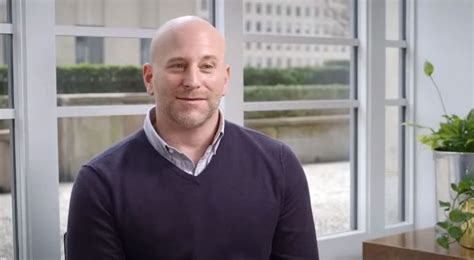A Quote by Brian Solis
Businesses are interacting with consumers to socialize rather than learn about customer expectations to in turn, deliver tangible value, improve product experiences, and invest in long-term relationships.
Related Quotes
Being captive to quarterly earnings isn't consistent with long-term value creation. This pressure and the short term focus of equity markets make it difficult for a public company to invest for long-term success, and tend to force company leaders to sacrifice long-term results to protect current earnings.
The most common way customer financing is done is you sell the customer on the product before you've built it or before you've finished it. The customer puts up the money to build the product or finish the product and becomes your first customer. Usually the customer simply wants the product and nothing more.
Traditional sales and marketing involves increasing market shares, which means selling as much of your product as you can to as many customers as possible. One-to-one marketing involves driving for a share of customer, which means ensuring that each individual customer who buys your product buys more product, buys only your brand, and is happy using your product instead of another to solve his problem. The true, current value of any one customer is a function of the customer's future purchases, across all the product lines, brands, and services offered by you.
If you understand cause and effect, it brings about a set of insights that leads you to a very different place. The knowledge will persuade you that the market isn't organized by customer category or by product category. If you understand the job that consumers need to complete, you can articulate all of the experiences in that job.
As we get older it is our short term memory that fades rather than our long term memory. Perhaps we have evolved like this so that we are able to tell the younger generation about the stories and experiences that have formed us which may be important to subsequent generations if they are to thrive.I worry though, about what might happen to our minds if most of the stories we hear are about greed, war, and atrocity



































